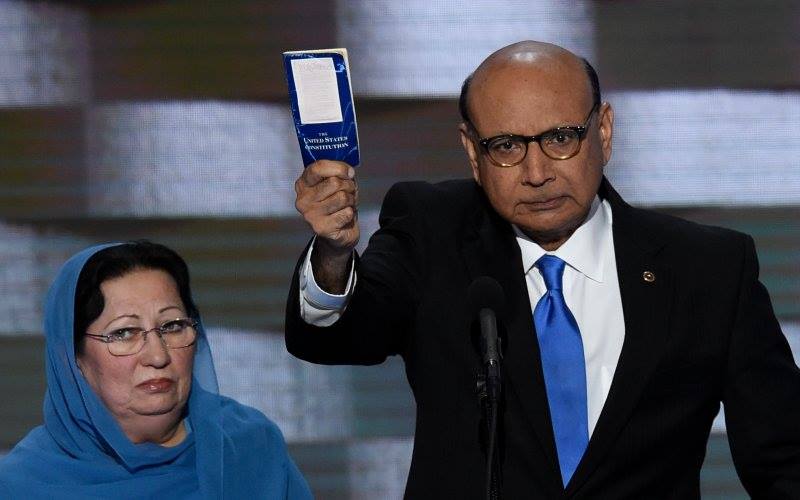At the Democratic National Convention, Khizr Khan, father of an American Muslim soldier slain in Iraq, spoke passionately about his love for his son and the U.S.While withdrawing a pocket Constitution from his suit pocket he asked Donald Trump an important question:
“Donald Trump, you are asking Americans to trust you with our future. Let me ask you: Have you even read the U.S. Constitution?”
With that simple gesture he focused the nation’s attention on our founding document. In the days following his speech, the pocket Constitution became a bestseller on Amazon.
Mr. Khan’s question is one that should be posed to all Americans—have you read the federal Constitution? We often throw around the word “rights,” but how many of us have spent time reading the document that enshrines those rights? And how many of us truly understand what it protects?
Take the First Amendment, for example. When Colin Kaepernick, the San Francisco 49ers quarterback, decided not to stand for the national anthem, sports writers and political pundits alike framed it as a First Amendment right. Even President Obama stated that Kaepernick was “exercising his constitutional right.”
But what exactly does the First Amendment protect? As Colleges of Law students learn in our U.S. Constitution class, the First Amendment provides, in part, that “Congress shall make no law abridging the freedom of speech, or of the press; or the right of the people peaceably to assemble.” In short, the government can neither require Kaepernick to stand for the national anthem nor punish him for failing to do so.
The First Amendment says nothing about private entities, however. The NFL and the 49ers could fine or even fire Kaepernick for protesting. While Kaepernick has the constitutional right to sit during the national anthem, he does not have the constitutional right to be employed. His speech is protected, but his job isn’t. It’s an important distinction.
The Constitution touches are lives daily, from the speech rights discussed above to gun rights and immigration rights. In California, Governor Brown recently signed into law bills restricting access to certain guns or ammunition. Opponents immediately vowed to challenge the laws, arguing that they violate the Second Amendment. Questions about whether President Obama exceeded his constitutional authority when he issued executive orders allowing undocumented immigrants to remain in the U.S. could affect thousands of Californians.
September 16, 2016, is National Constitution Day—the day we celebrate the signing of the most influential document in U.S. history. Take a moment to explore it with a great interactive created by the National Constitution Center.
It is essential reading for every American, not just presidential candidates.

